Turn robotic search into personal styling. Discover the AI fashion search engine that combines smart tagging, occasion-based filters, and stylist-like results.
by YesPlz.AISeptember 2025
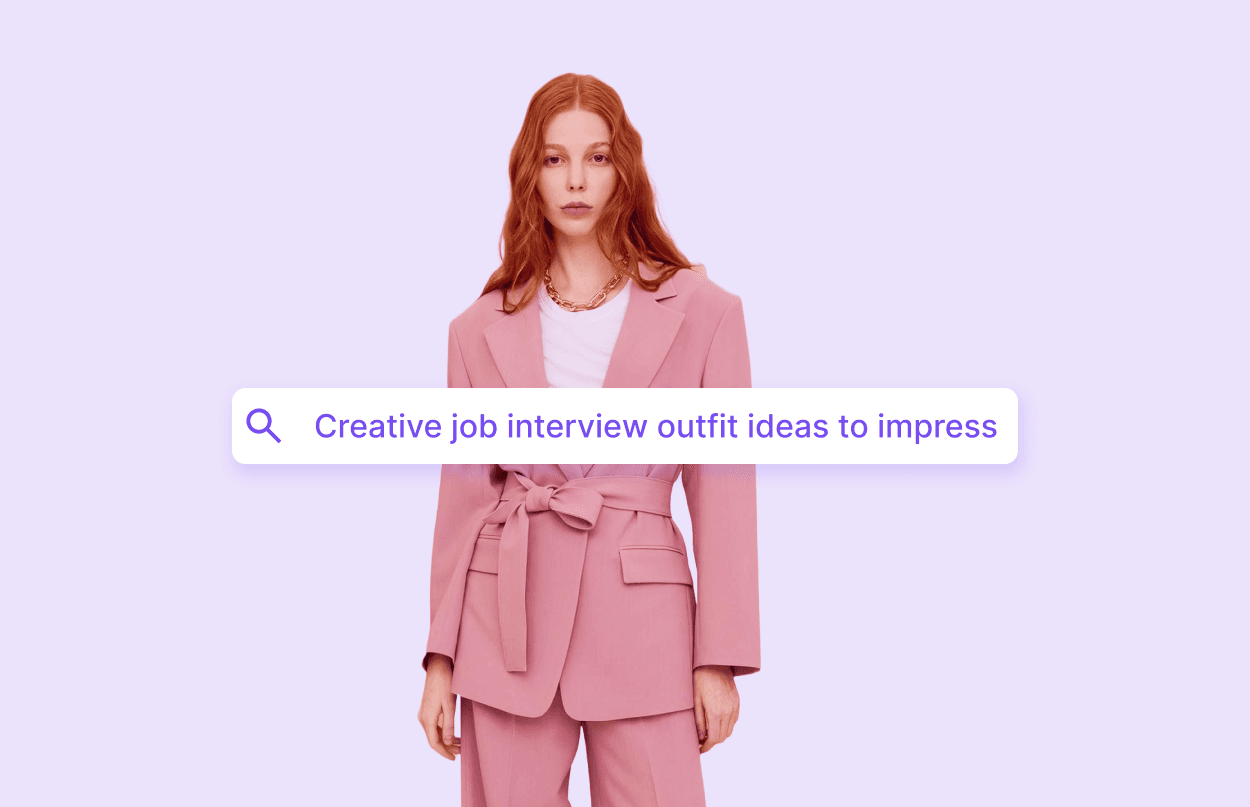
Over the past years, YesPlz has spoken with online fashion retailers across every segment. The conversations span global brands managing millions in revenues to ambitious startups launching their first collections. While every brand's journey is unique, the conversations tend to circle back to the same pressing challenge:
“How can we help shoppers find what they want more quickly and encourage them to keep coming back?” Every click matters. Every abandoned cart is a lost opportunity. Yet, most search bars still act like robots. They match keywords but ignore shoppers’ intent. But in fashion, intent matters. A dress isn’t just a dress. It's confidence for a job interview, celebration-ready for a wedding, or weekend-perfect for brunch with friends.
Every click matters. Every abandoned cart is a lost opportunity. Yet, most search bars still act like robots. They match keywords but ignore shoppers’ intent. But in fashion, intent matters. A dress isn’t just a dress. It's confidence for a job interview, celebration-ready for a wedding, or weekend-perfect for brunch with friends.
This is where the AI fashion search engine changes the game. It acts more like a personal stylist than a robot. It helps retailers connect shoppers with the products that truly match their needs, boosting both satisfaction and sales.
Tables of Contents:
Fashion items aren’t like electronics or home goods. A shopper searching for a ‘red cocktail dress’ doesn’t just want ‘red’ and ‘dress’ matched. They want the cut, silhouette, and mood to fit a cocktail party perfectly. General enterprise platforms simply weren’t built with this nuance in mind. And that’s where cracks begin to show.
The limitations of general platforms become painfully apparent in fashion-specific contexts. In our recent conversations with online retailers, the frustrations were immediate and specific. Without the AI fashion search engine, retailers risk leaving shoppers with limited filters, irrelevant results, and frustrating dead ends.
"We're stuck with only three occasion filters,” shared one frustrated retailer. Her shoppers want to filter occasions such as date night, work-from-home chic, or vacation resort wear. Yet, her current platform only offers casual, formal, and business filters.
She explained: "We see potential shoppers land on our site. They try one or two searches, then leave. Our current filters don't match how they think about clothes. So, they can't find what they're looking for quickly."
Generic enterprise platforms fall short of delivering the nuanced categorization that fashion shoppers expect. Many retailers report that inadequate filtering leads to higher bounce rates and abandoned searches.
"Can we customize or override the AI-generated tags when we disagree with the system's classification?" This question surfaced repeatedly in conversations between YesPlz and fashion retailers. Many of them prefer to combine human expertise with automated efficiency.
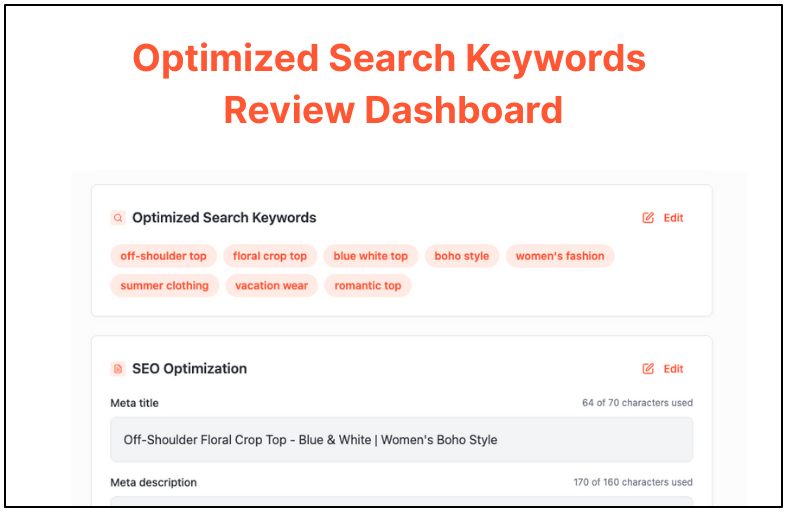
Fashion retailers understand their brand voice and shoppers better than any algorithm. But many find themselves locked into fashion tags that don't reflect their unique shopper language or brand aesthetic. Consider the following scenario.
One boutique owner targets the demographic of youths who want modern pieces with nostalgic touches. However, his current system consistently tags vintage-inspired pieces as retro. He wants to replace them with ‘contemporary with vintage details’ tags. But the current system doesn’t allow editing or customizing these automated tags.
Enterprise platforms provide search functionality. Yet, they weren't built with fashion's unique complexity in mind. These platforms treat fashion items like any other product category. It is similar to how they might handle electronics or home goods. In detail, they miss the emotional, aspirational, and highly subjective nature of clothing purchases. The result is a mechanical search experience that ignores how shoppers actually buy clothes.
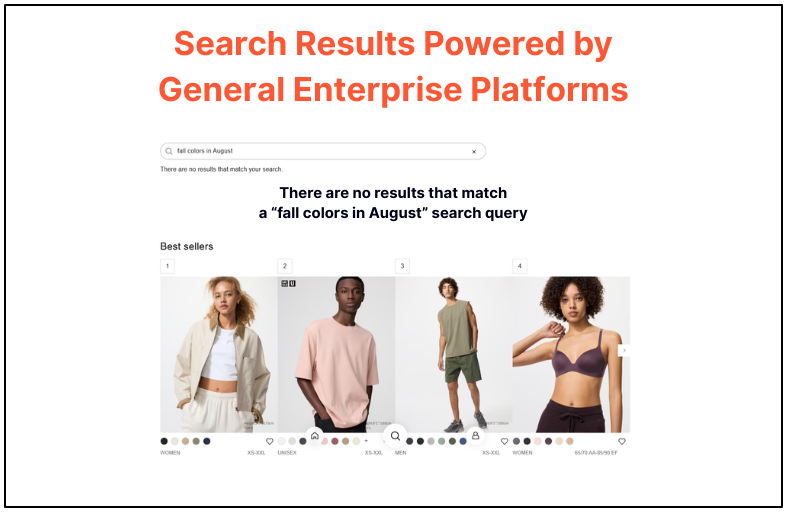 These generic platforms also fail to understand fashion's seasonal and trend-driven nature. A search query for ‘fall colors in August' might yield results. But traditional search bars don’t really understand that shoppers are planning for autumn purchases. They’re not looking for warm browns and oranges in summer weather. The disconnect between fashion's forward-looking nature and platform logic shows irrelevant results and creates frustrating dead ends.
These generic platforms also fail to understand fashion's seasonal and trend-driven nature. A search query for ‘fall colors in August' might yield results. But traditional search bars don’t really understand that shoppers are planning for autumn purchases. They’re not looking for warm browns and oranges in summer weather. The disconnect between fashion's forward-looking nature and platform logic shows irrelevant results and creates frustrating dead ends.
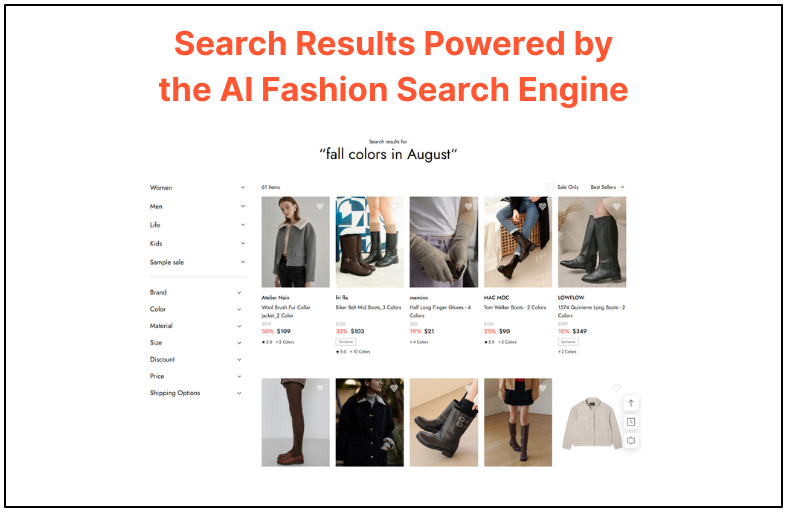 What Fashion Retailers Really Need from AI Fashion Search Engine
What Fashion Retailers Really Need from AI Fashion Search EngineFashion search isn't just about better keyword matching. It's about understanding intent in the same way a personal stylist would. In our conversations with fashion retailers, three needs consistently rise to the top.
Fashion shoppers don’t think in cold keywords. In their minds, they are caught up in moments, moods, and occasions. Let’s take an example. When a shopper searches for ‘interview outfit,’ she is not looking for business attire. She is seeking confidence, professionalism, and the right impression for a career-defining moment.
But most search bars on eCommerce sites today only match keywords on a page. They return endless lists of products that technically fit the query. Meanwhile, the AI fashion search engine can understand the context. It can surface not just blazers and pencil skirts, but complete looks that convey competence and style.
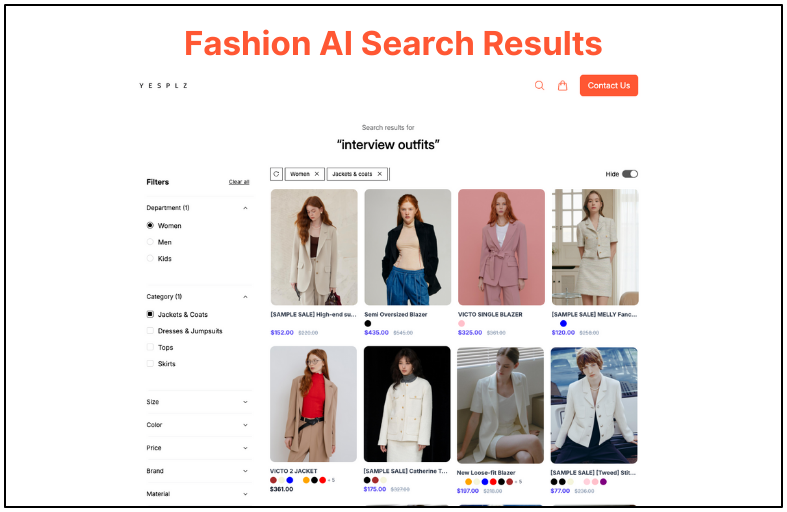 What fashion retailers need is a search bar that acts more like a stylist. It can understand subtle cues and interpret intent. So, it can deliver results that feel right, not just look right.
What fashion retailers need is a search bar that acts more like a stylist. It can understand subtle cues and interpret intent. So, it can deliver results that feel right, not just look right.
Automated tagging is undeniably powerful. Its main use is to create optimized keywords that improve search results. It can process thousands of products in minutes. Faster than any human team.
But fashion retailers need more than speed. They also need a flexible system that grows with their brand. A tagging solution that allows them to leverage AI efficiency. But they will still be able to edit, override, or add new tags through an intuitive dashboard. This keeps the human touch where it matters most. Meanwhile, AI handles repetitive tasks at scale.
For example, AI might tag a flowing midi dress as casual wear. But a fashion retailer might know that her shoppers frequently purchase it under ‘garden parties’ or ‘romantic dinners’ tags. These custom tags open doors to better styling tips and cross-selling opportunities.
Forward-thinking fashion retailers want filters that mirror how people actually shop for clothes. Not how inventory management systems classify them. Instead of sticking to basic attributes like size or color, the AI fashion search engine goes deeper. It lets shoppers filter by:
Occasions: Date night, office meeting, weekend casual, formal events…
Styles: Boho, minimalist, edgy, classic, trendy…
Aesthetics: Romantic, powerful, relaxed, sophisticated…
Lifestyles: Travel-ready, work-from-home, gym-to-street…
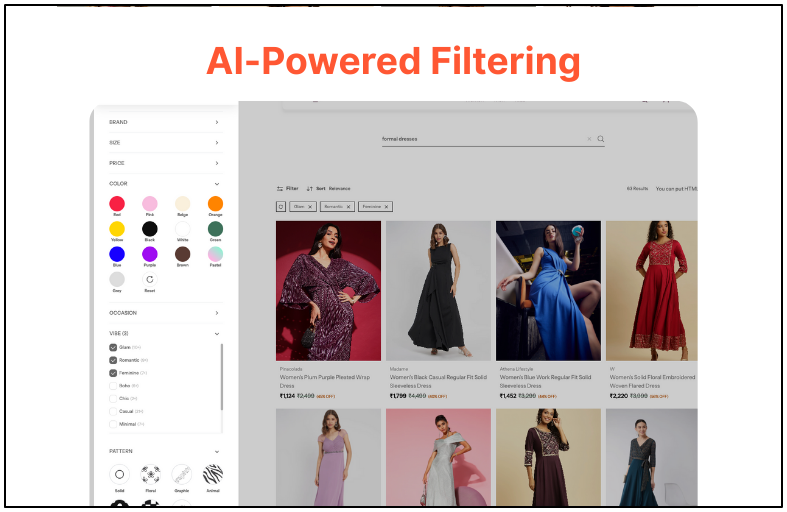 This approach reflects real shopping behavior. People buy clothes for their lives, not just for product specifications.
This approach reflects real shopping behavior. People buy clothes for their lives, not just for product specifications.
For retailers invested in enterprise platforms, the path forward doesn't require starting over. The AI fashion search engine is designed to work with existing infrastructure. It provides flexibility for different business needs and technical requirements. Based on our client conversations and successful implementations, YesPlz identified two distinct pathways that deliver results.
This approach keeps your current infrastructure while supercharging it with fashion-specific intelligence. Think of it as giving your existing search bar a fashion education. For example, with AI tagging enhancement, your search bar can:
Understand that ‘blazer,’ ‘jacket,’ or ‘blzer’ (a common typo) all refer to similar products.
Automatically handle fashion-specific synonyms like ‘midi’ and ‘mid-length,’ ‘bodycon’ and ‘fitted,’ or ‘boho’ and ‘bohemian.’
Handle keyword variations, typos, and synonyms
Optimize search keywords
Eliminate the need for manual keyword mapping
Enhance discoverability and create more effective filtering options
Reduce the frustration of getting zero results for common search terms
More accurate and contextually relevant search results
Enhanced filters that reflect how shoppers actually think
Faster product discovery through improved keyword matching and suggestions
Retailers who want immediate improvement without disrupting established operations
Teams are testing the waters with the AI fashion search engine before making larger technical commitments
Brands with existing systems that perform well in other operational areas
Case Study 1: Optimize Search Keywords
Before: A ‘long sleeves top’ returns limited, poorly categorized results. The tops shown up in search results don't capture the full range of long-sleeve options available in inventory.
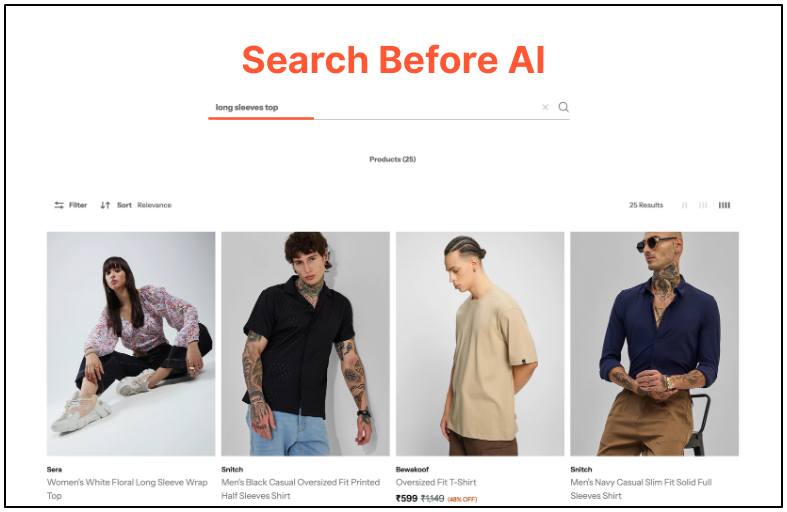 After: The same search query now returns 264 curated results across multiple categories, including:
After: The same search query now returns 264 curated results across multiple categories, including:
casual crop tops
fitted solid styles
floral wrap designs
elegant fitted options
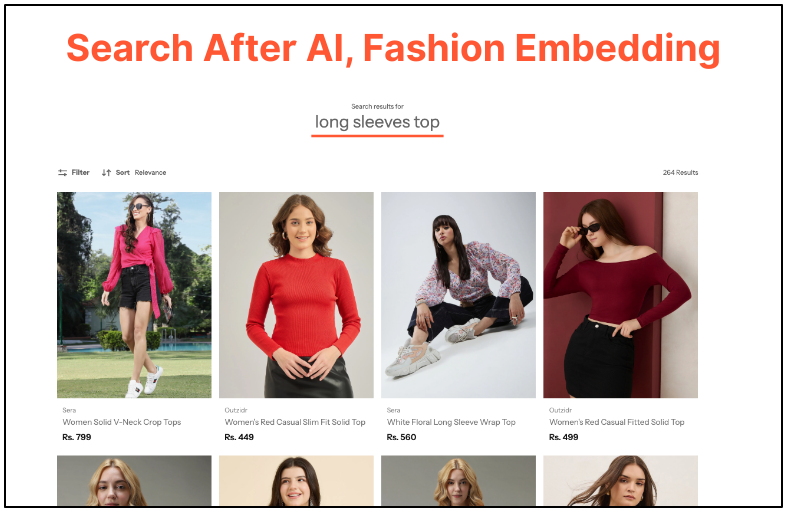 Powered by the AI fashion search engine, the search bar now acts like a personal stylist. It automatically understands that long-sleeve tops serve different purposes. As a result, it presents everything, from workout-ready pieces to office-appropriate styles.
Powered by the AI fashion search engine, the search bar now acts like a personal stylist. It automatically understands that long-sleeve tops serve different purposes. As a result, it presents everything, from workout-ready pieces to office-appropriate styles.
Case Study 2: Enhance Filtering Options - Occasion and Style-based Filters
A search for ‘boho dresses’ hits a frustrating dead end with "No results found for 'boho dresses.' Check the spelling or rephrase your query.” This type of search result is sending potential buyers straight to your competitors.
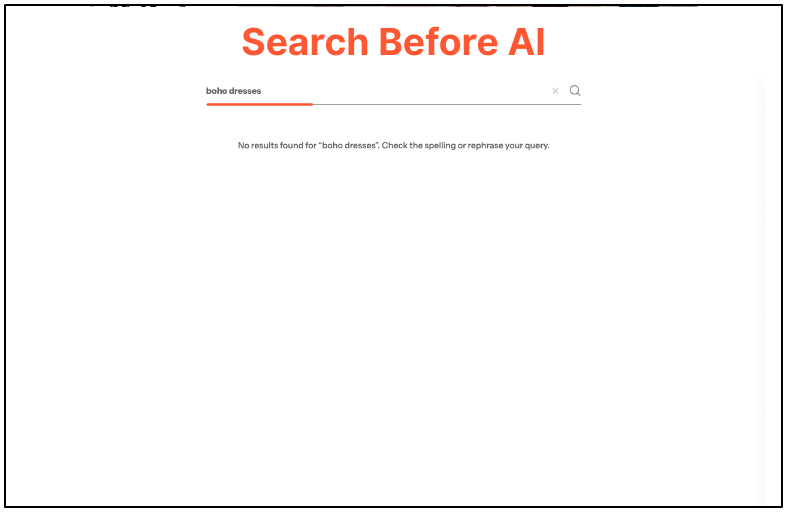 After integrating the AI fashion search engine, the search bar now returns 78 relevant results. It showcases flowing midi dresses, casual sleeveless styles, and printed pieces that capture the bohemian aesthetic. Plus, shoppers can filter the search results by occasions, vibes, and patterns beyond basic size and color options.
After integrating the AI fashion search engine, the search bar now returns 78 relevant results. It showcases flowing midi dresses, casual sleeveless styles, and printed pieces that capture the bohemian aesthetic. Plus, shoppers can filter the search results by occasions, vibes, and patterns beyond basic size and color options.
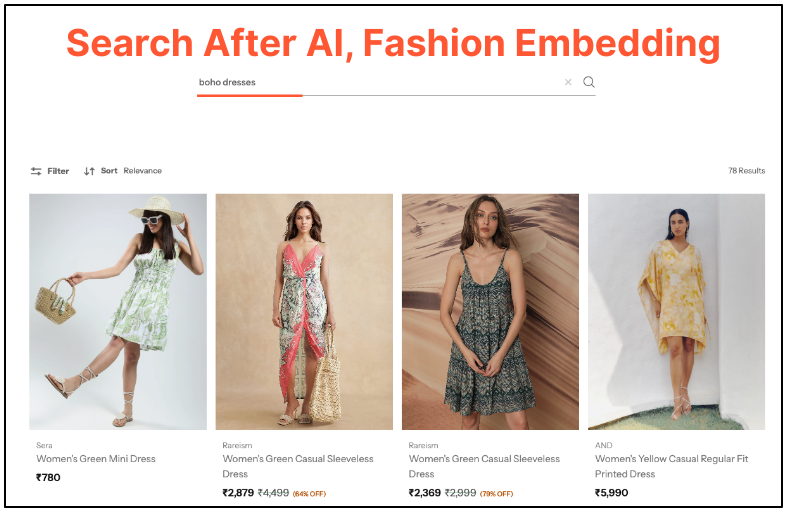 Option 2: Hybrid Replacement - Best-in-Class Fashion Discovery
Option 2: Hybrid Replacement - Best-in-Class Fashion Discovery
This approach implements a specialized fashion search and filtering solution. Yet, it still maintains the current enterprise platform for backend operations.
Maintain existing platform strengths for inventory management, customer data, and order processing
Replace customer-facing search with a hybrid search engine designed specifically for fashion
Integrate advanced AI capabilities that understand fashion context, style, and shopper intent
The search bar understands the contextual meaning of input words
Shoppers can search using natural language like ‘something flowy for a beach vacation’
Retailers ready to lead in shopper experience innovation and differentiation
Brands experiencing significant revenue loss from poor search performance
Companies where product discovery serves as a key competitive differentiator
Teams with technical resources to support integration projects
Search bars of general platforms rely on basic keyword matching. So, a query like ‘short skirts’ often shows irrelevant results such as short-sleeve tops or men's shirts. Since the word ‘short’ or ‘shirt’ (which has a nearly similar spelling to ‘skirt’) appears in the product titles or descriptions.
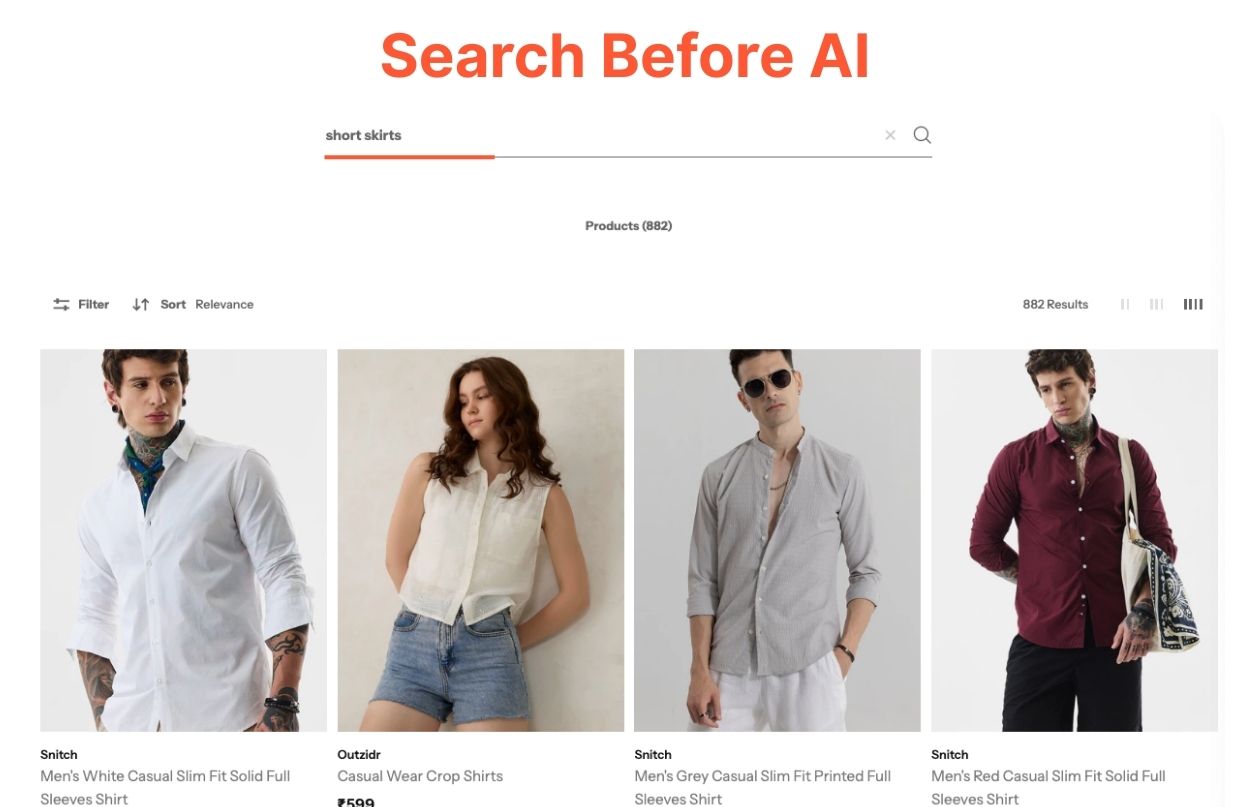 With the AI fashion search engine, the experience changes completely. The search bar can now understand the contextual meaning behind the query. It combines text with image recognition. The result? Shoppers see exactly what they’re looking for. Short skirts are showing in search results in different styles and colors. Even when product titles and descriptions don’t explicitly mention them.
With the AI fashion search engine, the experience changes completely. The search bar can now understand the contextual meaning behind the query. It combines text with image recognition. The result? Shoppers see exactly what they’re looking for. Short skirts are showing in search results in different styles and colors. Even when product titles and descriptions don’t explicitly mention them.
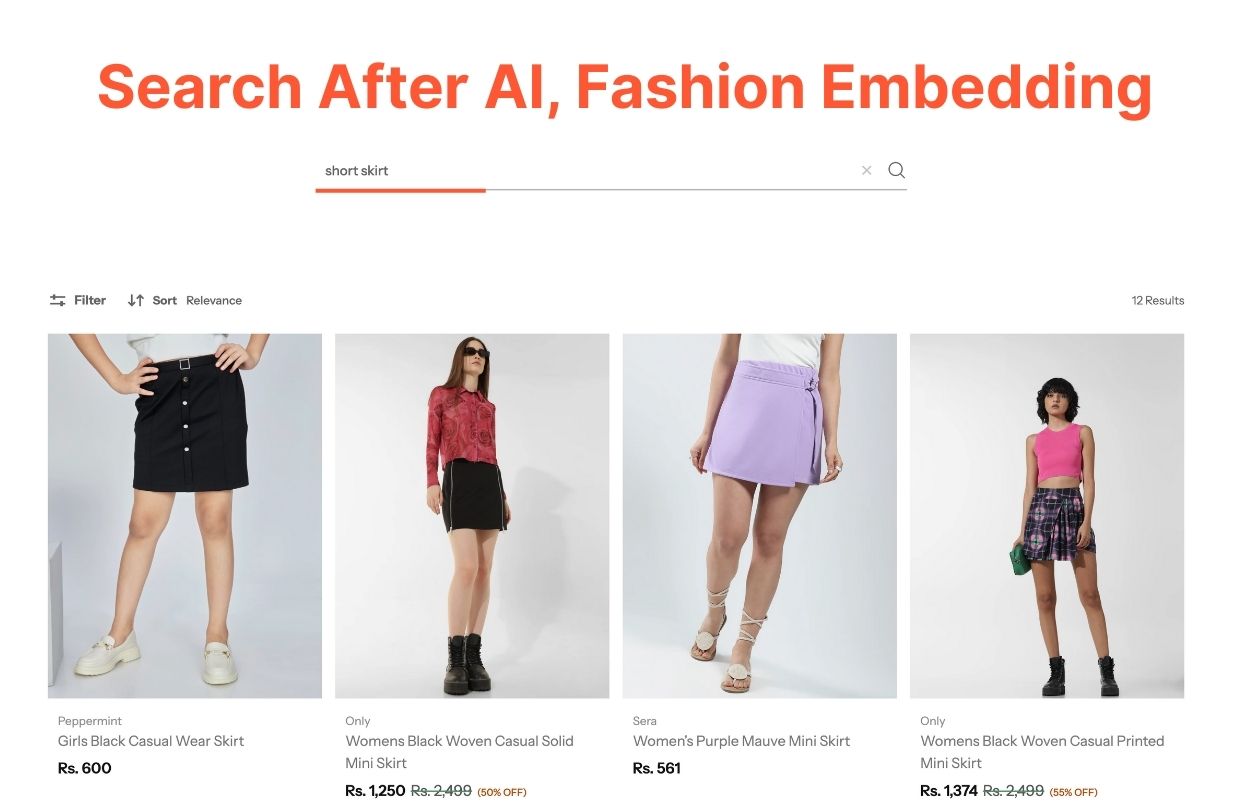 Especially, fashion retailers can review and edit tags via an intuitive dashboard. They can now leverage the power of automation. But still be able to customize fashion tags to fit their unique brand identity and customer base.
Especially, fashion retailers can review and edit tags via an intuitive dashboard. They can now leverage the power of automation. But still be able to customize fashion tags to fit their unique brand identity and customer base.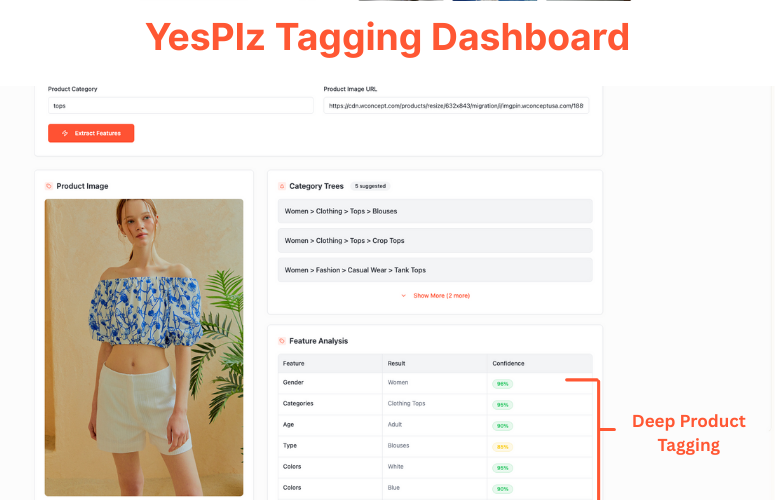
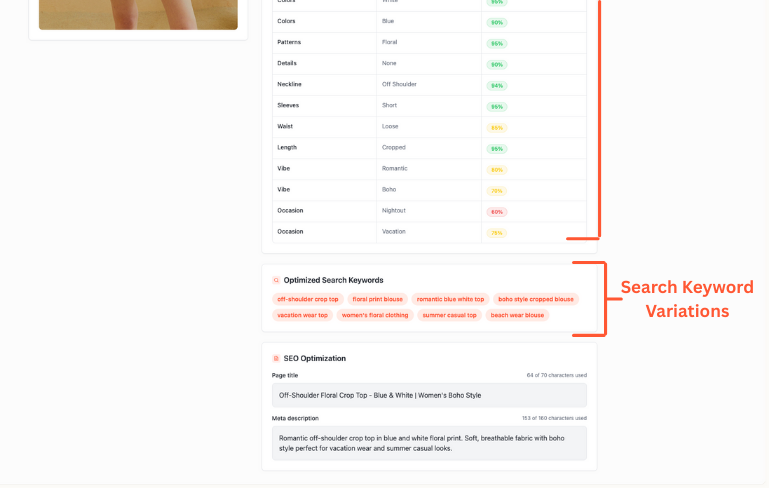 Conclusion
Conclusion
Fashion search has evolved beyond simple product finding. It's about helping shoppers find themselves in your brand. Whether you choose AI tagging enhancement or hybrid replacement, the key is creating a search experience that feels like a knowledgeable stylist rather than a mechanical search engine.
Ready to see the difference between a robotic search bar and a personal stylist-powered discovery experience? Book a demo to experience firsthand how the AI fashion search engine transforms browsers into buyers and one-time shoppers into loyal customers.

Written by YesPlz.AI
We build the next gen visual search & recommendation for online fashion retailers
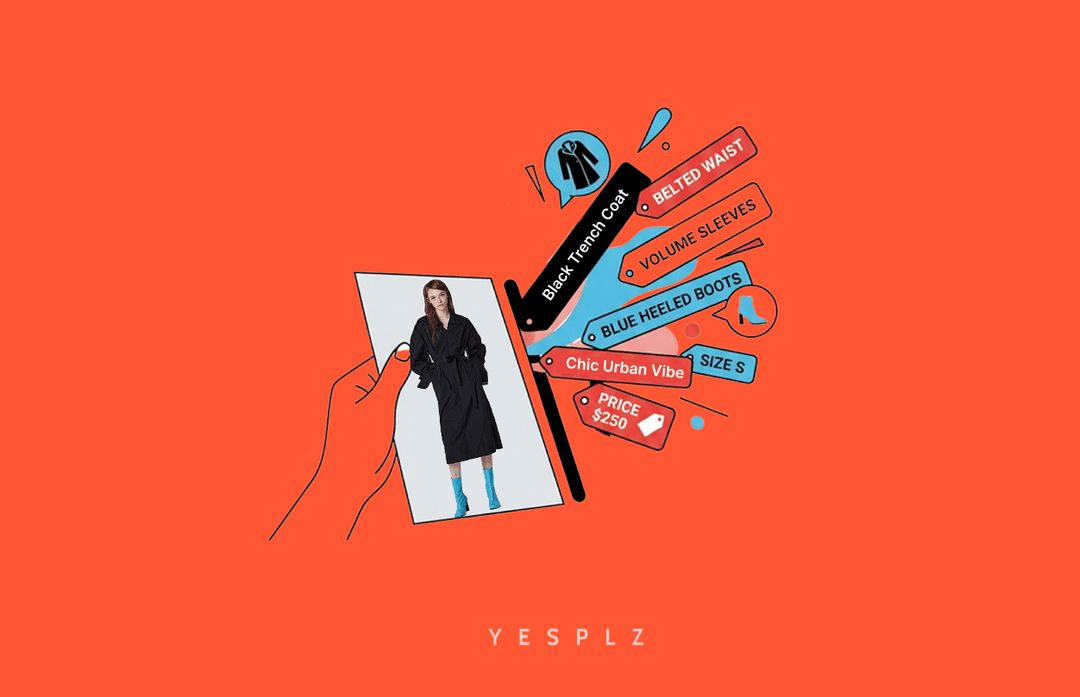
Inconsistent tags hurting sales? Self-service product tagging delivers accuracy and speed without enterprise prices. Tag products 10x faster at 90% lower cost.
by YesPlz.AI
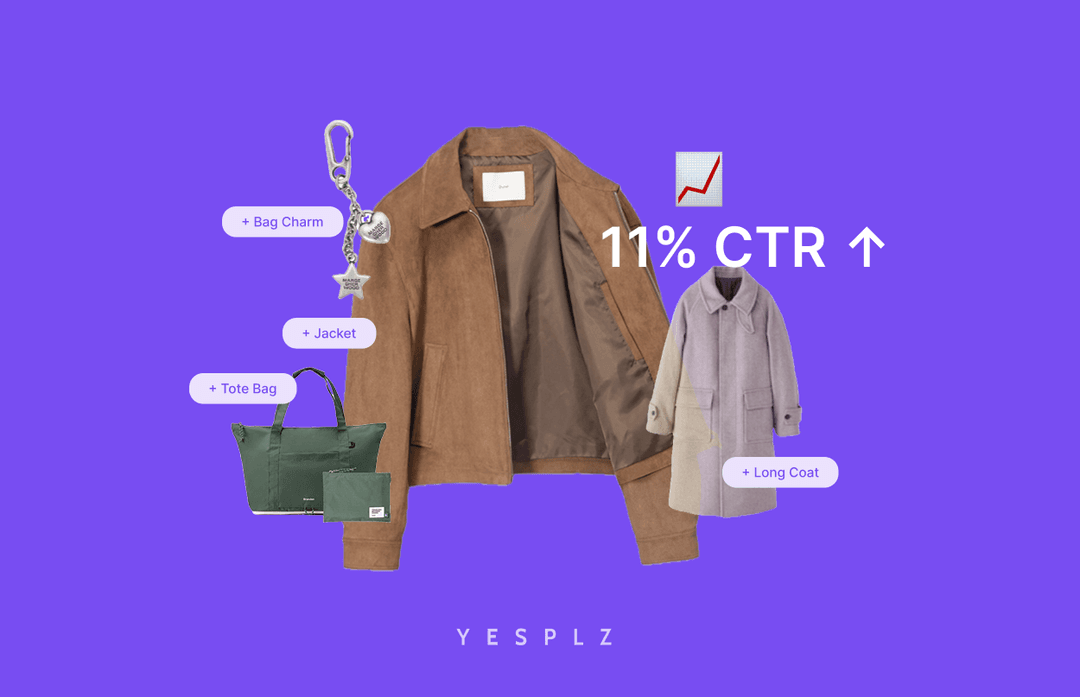
We analyzed 13,374 fashion searches. AI tagging increased product discovery by 22% and boosted clicks by 11%. Here’s what the data revealed.
by YesPlz.AI